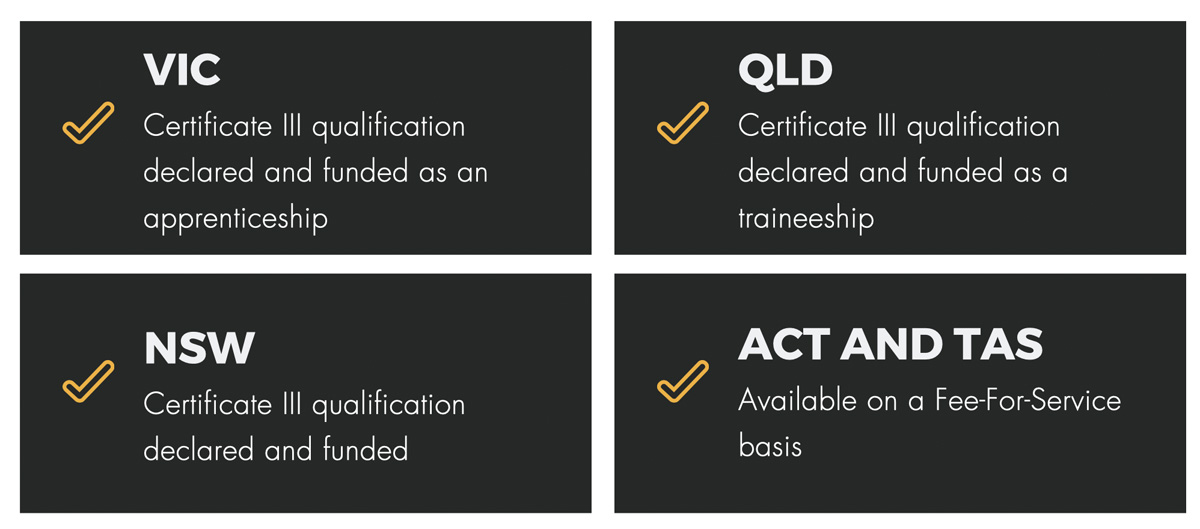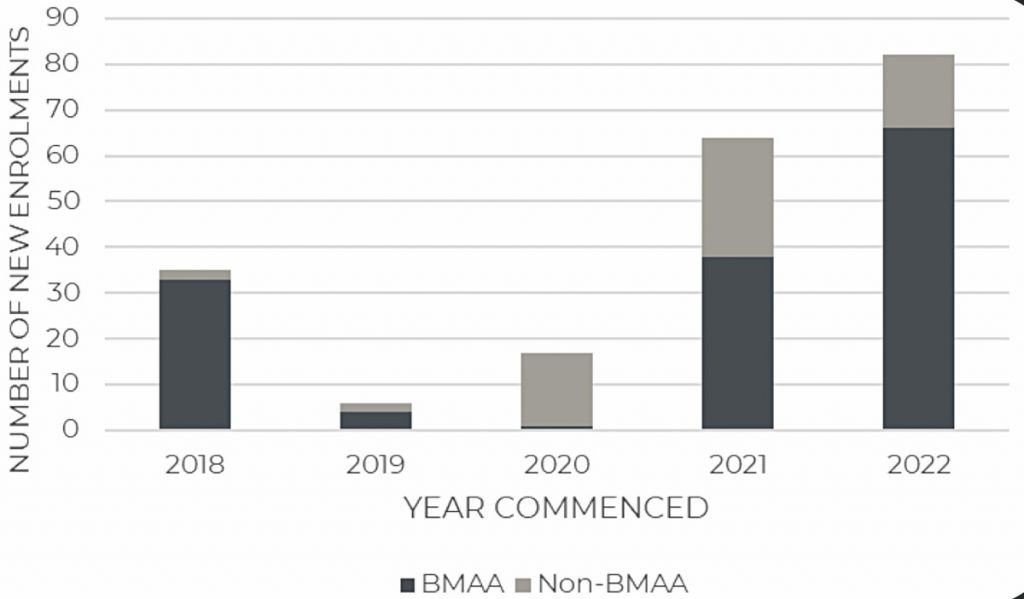

The Blind Manufacturers Association of Australia (BMAA) – in partnership with The Frontline Group – is hosting the 2022 National Training Summit for the window furnishing industry in Melbourne on 11 November 2022.
The BMAA in partnership with The Frontline Group released the National Industry Training Plan 2017-2022: Blinds, Awnings, Shutters following the first industry training summit in 2017.
“It is now time to review that Training Plan and lay the directions for training and development in our industry for the next five years,” Gilbert Da Silva, President of the BMAA told WFA.
“Five years ago in May 2017, more than 100 industry representative practitioners from across Australia and the BMAA Board of Directors gathered for the first ever National Training Summit for the blind, awning, and shutter industry.
“A key priority and outcome of the Industry Training Plan over this last five years has been to secure a nationally recognised trade level certificate and represent the industry to governments and industry training groups.”
“This was in response to a key need identified by the BMAA and its members to provide a training and certification pathway that would lead to nationally recognised technical outcomes, which is currently the MSF30919 Certificate III in Blinds, Awnings, Security Screens and Grilles.”
Steve Quirk, Director of The Frontline Group, said that as the National Training Plan rolled out, and the Certificate III based industry training program grew, it became clear that a more flexible approach was needed.
“The BMAA and The Frontline Group have been successful in advocating for changes in the Certificate III qualification to be more flexible and responsive to the needs of industry, by allowing for streaming of study in customer consultation, manufacture, and installation areas plus the inclusion of a curtains/soft furnishings stream in response to changes within the national training package.”
“The BMAA and The Frontline Group continue to advocate for a streamlined and consistent licensing scheme across the industry.”
“There is a growing view that the Certificate III qualification be the basis for this license.”

Quirk said the Covid pandemic has delayed full development of all key priorities of the National Training Plan 2017 – 2022 with some delay to the roll out to all states as planned; however, with a return to a somewhat business as usual approach in most states, 2022 has been the year to renew the focus on the industry training program.
“Looking ahead over the next five years, the industry will require a range of specialist production, installation, maintenance and other technician skills, including trained designers, and trades in addition to technical and design capable customer service personnel, skilled technicians and installation personnel, and maintenance and service technicians.”
“The blind, awning and shutter industry has identified difficulty in securing suitably skilled labour as a major inhibitor to business growth and thus firms and the industry as an aggregate have determined to develop labour productivity and skills through on-the-job training and post-secondary education programs to ensure the long-term success of individual businesses and the industry.
“This is the challenge to be explored by the Training Summit on 11 November 2022.”
At the recent STA Conference held in Sydney, Quirk revealed that the Certificate III in Blinds, Awnings, Security Screens and Grilles, is one of the fastest growing apprenticeship in the country.
“From zero to just 317 enrolments in the last five years, with a growth rate of 76% and 40 % of our apprentices are women,” Quirk said.
“Also, 84% of people who start with us complete their apprenticeship. To put that in context for you, when they start in a class of 20 apprentices, we expect 17 people will finish, whereas in other apprenticeships the number completing can be as low as 9 out of 20.”
“Our workforce is different to what we might have associated with the concept of apprenticeships.“
“Our workforce is much more diverse and the future for our industry depends on the extent to which we develop the capability to engage with the diverse workplace,” Quirk added.